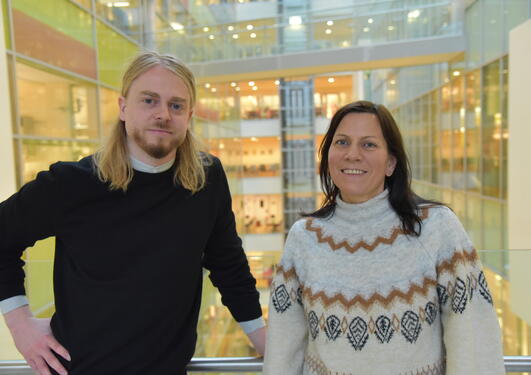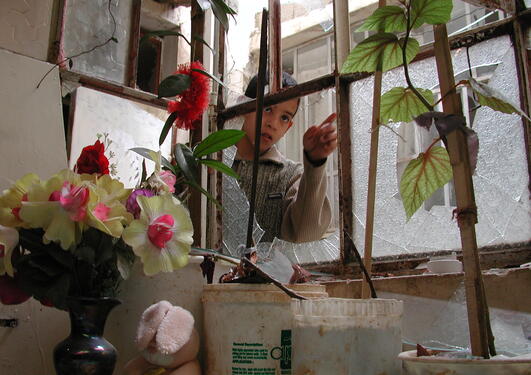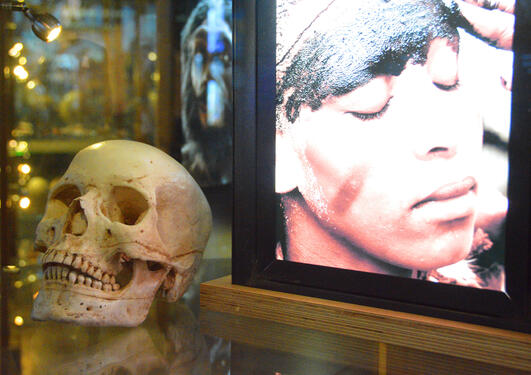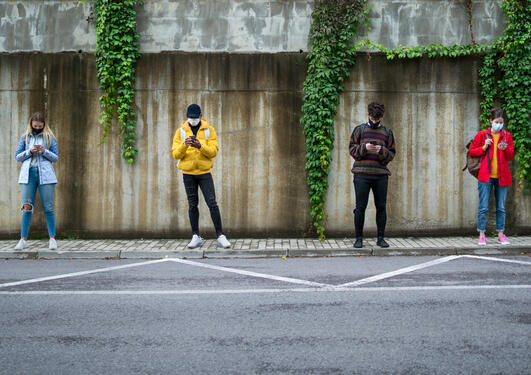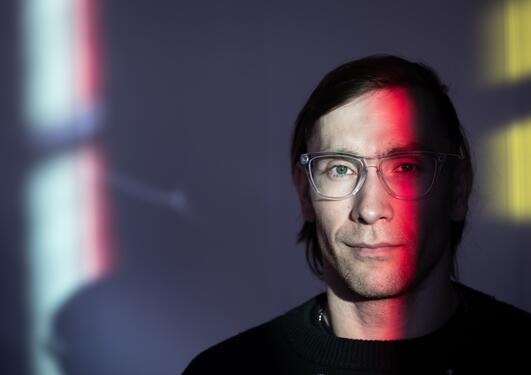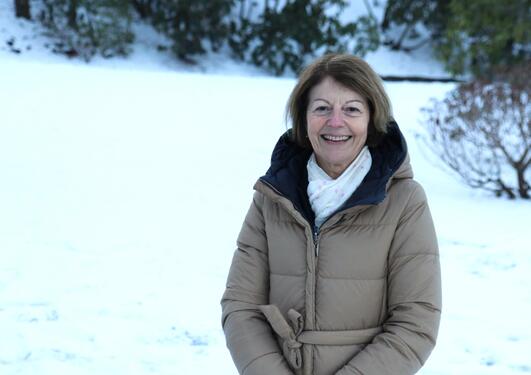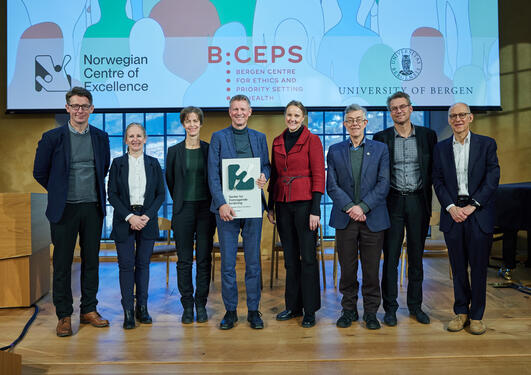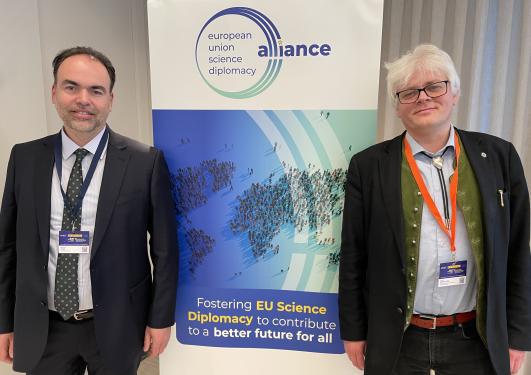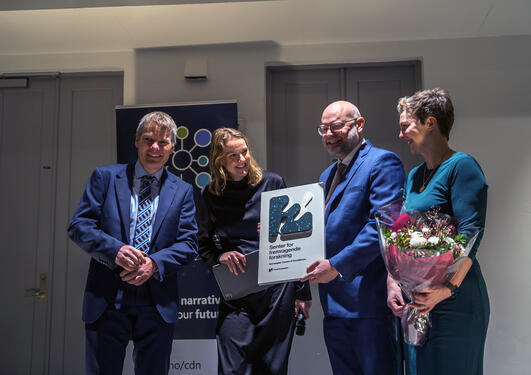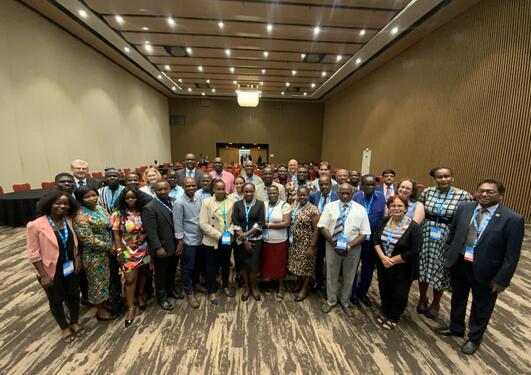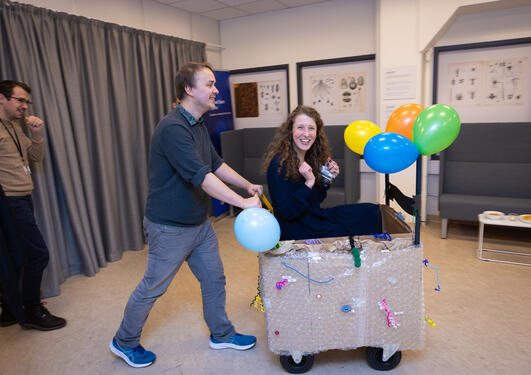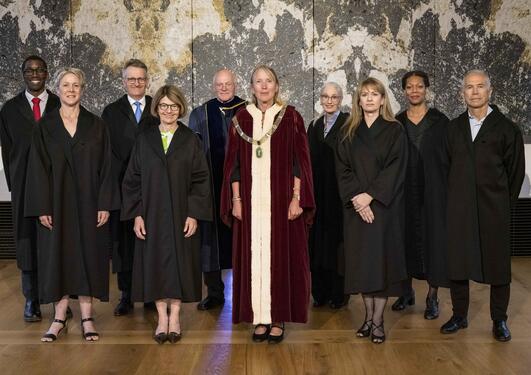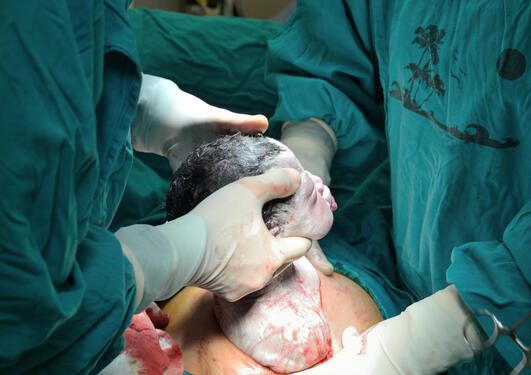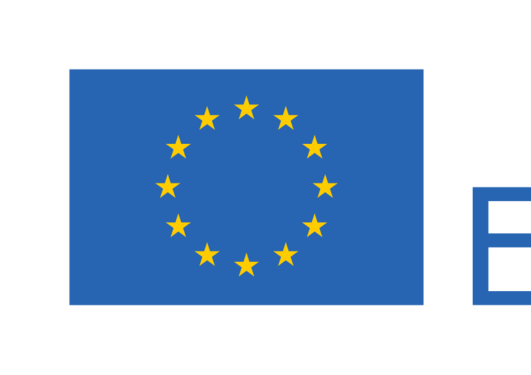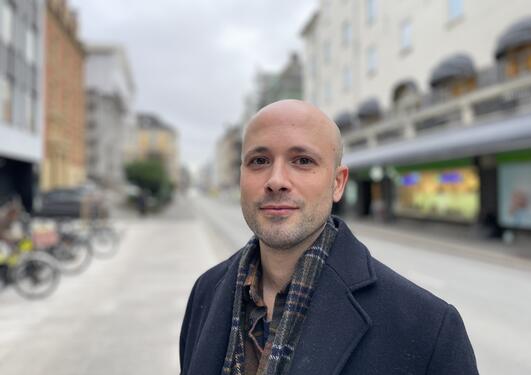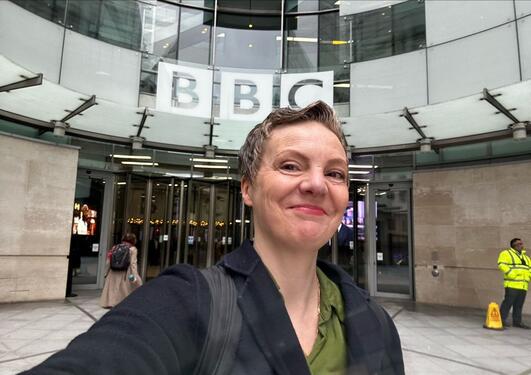News archive for News
New research indicates that muscle strength may play a more significant role in adult men's sexual lives than previously known. The researchers behind the study aim to break the taboos concering sexual dysfunction among men.
«We are well aware that a significant change is necessary. We have the knowledge that is needed. Now we must figure out what to do,» professor Håvard Haarstad at UiB says. The seventh SDG Conference in Bergen will be held from 7.-9. February. We ask: What should be the role of universities?
- The stories health and school personnel tell about children's suffering in Gaza and the West Bank are heartbreaking and shocking, says psychologist specialist Unni Heltne.
A new SapienCE exhibition has opened in South Africa. The 'Origins of Early Southern Sapiens Behaviour” showcases unique archaeological discoveries offering visitors a distinct cultural experience in the heart of the De Hoop Nature Reserve.
Use of cultural specific terms in times of crises can cause greater health inequalities (22.01.2024)
During the coronavirus pandemic, Norwegian health authorities used the term "dugnad" to encourage collective infection control measures. New research indicates that the use of such culturally specific terms can be problematic for immigrant groups.
Rustam Galimullin is one of several experts in artificial intelligence at UiB. Learn more about him and his research here.
Anne Larigauderie, Executive Secretary of the Intergovernmental Platform on Biodiversity and Ecosystem Services (IPBES), has been awarded an honorary doctorate at the University of Bergen.
On Monday 8 January, the official opening of BCEPS Centre of Excellence took place in the university aula. The centre will develop new methods and ethical frameworks to help decision-makers in ensuring a fairer distribution of health services.
The Norway-EU Science Diplomacy Network had a strong presence at the European Science Diplomacy Conference, which took place in Madrid in December 2023.
CDN opening on December 11th, with Rector, Research Council and Drummer Boys.
The Water ESSENCE Africa project organized an excellent and well-visited workshop during the International Water Association’s Congress in Kigali, Rwanda discussing how universities can contribute towards achievement of SDG6, Clean Water and Sanitation.
On the 15th of December 2023, PhD candidate Ronja Göhde successfully defended her thesis titled: “Secretory vesicle protein homologues in choanoflagellates”.
Kirsten Shepherd-Barr, Camille Norment, Mads Bryde Andersen, Christopher Aiden-Lee Jackson, Alberto Ascherio, Trond Petersen, Lynn Meskell, Jeanne C. Watson and Anne Larigauderie received the prestigious honorary doctorate from the University of Bergen on May 24.
In new study published by researchers at the Department for Global Public Health and Primary Care they found a bidirectional relationship between C-section and the time it takes for a couple to conceive.
UiB research reveals that around 20 per cent of all cases of the most severe form of breast cancer may arise from the small group of normal tissue cells carrying an epimutation of a specific gene.
The University of Bergen has provided input on priorities and design for the European Union's framework programme for education.
Populist far-right parties portray fossil fuel phase-out as a threat to traditional family values, regional identity, and national sovereignty, according to researchers at UiB.
Machine Vision on radio: About the history of humans expanding our vision with technology, on Start the Week.
Pages
- 2025
- 2024
- 2023
- 2022
- 2021
- 2020
- 2019
- 2018
- 2017
- 2016
- 2015
- 2014
- 2013
- 2012
- 2011
